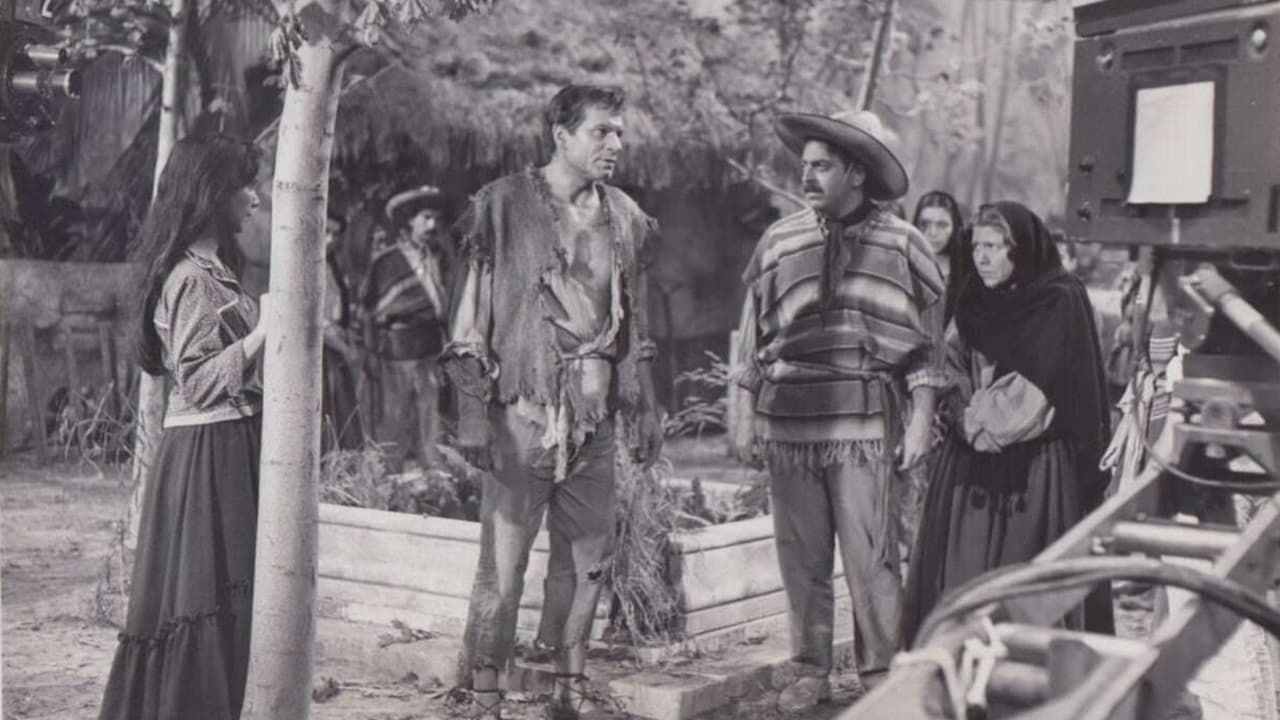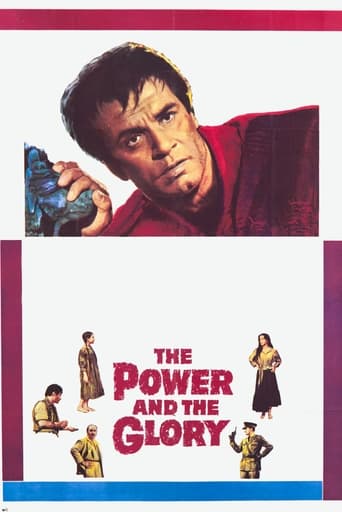F Gwynplaine MacIntyre
Graham Greene's novel 'The Power and the Glory' got the Hollywood treatment in 1947, as a film called 'The Fugitive' (starring Henry Fonda and directed by John Ford). It's a decent movie, quite faithful to Greene's novel ... although the title change suggests a cynical (and misleading) attempt to dilute the very Catholic themes of Greene's story in favour of a more 'box-office' chase drama. The 1961 version of 'The Power and the Glory' is also faithful to the novel, but is very different. This version was produced by David Susskind for U.S. television (and for cinema release in Europe, where I saw it). Alas, it suffers from a low budget and very slow, stolid direction. All of the exterior scenes were very obviously shot on an indoor soundstage.Although a big-name cast are on offer here, most of them are sadly miscast. Early in the story, Laurence Olivier plays a scene with a young Mexican girl... depicted by Patty Duke. Even at this young age, Patty Duke was an astonishingly talented actress ... but not for one instant do we accept her as a Chicana, and this lapse is absolutely fatal to her characterisation. Similarly, Keenan Wynn (who has impressed me in many other roles) is about the most un-Mexican actor I've ever seen, and he too is miscast here. I shan't even discuss Roddy McDowall as a Mexican Indian...Another casting choice is unfortunate in hindsight. The comedian James Coco (already going plump at this early age) appears briefly, unbilled, in a serious role as a Mexican soldier. Unfortunately, when he strolls across the screen (sauntering in a most unmilitary gait), modern viewers will recognise Coco from his comic roles, and this harms the dramatic effect of his two brief appearances.Olivier plays a 'whisky priest' in post-revolution Mexico: a Catholic cleric who risks his life by continuing to conduct the Catholic Mass in secret after the totalitarian government have outlawed the Catholic Church. In order to confer the Christian sacraments, the priest must have wine ... but his attempts to obtain wine will call attention to his clandestine activities. Despite Keenan Wynn's miscasting, there is an excellent scene in which Olivier purchases wine from black marketeer Wynn and his crony. To avoid arousing suspicion with his wine purchase, Olivier buys some whisky too. After the deal is done, Wynn and his partner bully Olivier into 'sharing' the wine with them ... meaning that Wynn and his partner proceed to guzzle all the wine (which Olivier needs) while letting Olivier keep the whisky (which he only needed as a decoy). Olivier's reactions are very believable indeed.Although most of the actors here are excellent, the whole affair has a stagebound flavour. Acting for the camera (whether movie or television) is a very different craft from stage acting, and most of the performers here seem to be working in stage-play mode. Julie Harris is very appealing here, both physically and emotionally.This is a slow, earnest drama with a great deal of dialogue and very little action, but there are several good performances ... and most of Greene's themes and ideas make the transition successfully. If you're hostile towards the Catholic Church, be advised that this production depicts the Catholic clergy as the good guys. I'll rate this production 6 points out of 10.

